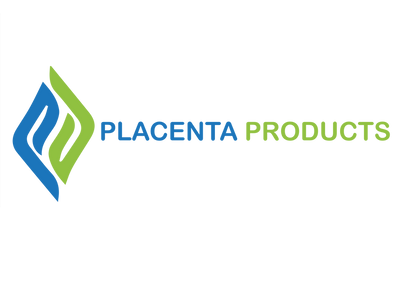Postpartum Depression Treatment
Get professional help.
If you are experiencing postpartum depression, it is important to get professional help. Postpartum depression is a serious condition that can cause significant distress and impairment in your life. Symptoms of postpartum depression can include feeling sad, hopeless, or overwhelmed; crying frequently; having trouble sleeping or eating; feeling numb or disconnected from your baby or others; and having thoughts of harming yourself or your baby.
If you are experiencing any of these symptoms, it is important to seek help from a mental health professional. Treatment for postpartum depression typically includes counseling and/or medication. With treatment, you can feel better and enjoy your baby.

Identify and Treat any Underlying Causes
Postpartum depression (PPD) is a mood disorder that can affect women after childbirth. Symptoms can include sadness, anxiety, guilt, fear, and irritability. PPD can make it hard for mothers to take care of their children and can also affect their relationship with their partner or spouse.
PPD is a serious condition and should be treated by a doctor. Some underlying causes of PPD may include hormonal changes, sleep deprivation, and stress. Treatment may include medications, therapy, and lifestyle changes.
If you are experiencing symptoms of PPD, it is important to seek help. Talk to your doctor, or call a mental health hotline in your area.
Start with a Low Dose of an Antidepressant
Postpartum depression (PPD) is a type of depression that can affect women after they have a baby. It can happen anytime in the first year after the baby is born. Some women have PPD after a difficult pregnancy, labor, or delivery. But for most women, PPD symptoms appear within the first few weeks after giving birth.
PPD can make it hard for a woman to take care of herself or her baby. Some women with PPD may feel like they are not good mothers or they may feel like they are not cut out for motherhood. Some women may feel like they are a bad person because they are not happy. PPD can make it hard to eat, sleep, or think clearly. It can also make it hard to take care of a baby.
PPD is a real illness and it is very important to get help. Some women feel better after a few weeks of treatment, but others may need treatment for a longer period of time. Treatment usually includes a low dose of an antidepressant and counseling.
Increase the Dose Slowly
If you are experiencing postpartum depression, it is important to get help. Postpartum depression is a type of depression that can occur after childbirth. Symptoms can include feeling down, sad, anxious, or overwhelmed; having trouble sleeping or eating; feeling irritable or angry; and having trouble concentrating. If you are experiencing any of these symptoms, it is important to talk to your doctor.
There are a number of treatment options for postpartum depression. Treatment options may include counseling, medication, or a combination of both. Counseling can help you understand and manage your feelings, and medication can help to improve your mood. It is important to increase the dose of medication slowly, so that you can tolerate it and so that you can be sure that it is helping to improve your mood.
It is also important to get support from your loved ones. Family and friends can provide emotional support and can help you take care of yourself and your baby. Taking care of a newborn can be overwhelming, and it is important to ask for help when you need it.
If you are experiencing postpartum depression, it is important to get help. Talk to your doctor about the best treatment option for you. You can also get support from your loved ones. Taking care of a newborn can be overwhelming, so don't be afraid to ask for help when you need it.

Recognizing Postpartum Depression
Postpartum depression is a very real and serious condition that can occur after childbirth. It is important to be able to recognize the signs and symptoms of postpartum depression in order to get treatment if needed.
Some signs and symptoms of postpartum depression may include feeling overwhelmed or sad, having trouble sleeping, changes in appetite, feeling anxious or guilty, and having thoughts of harming oneself or the baby.
If you are experiencing any of these symptoms, it is important to reach out for help. There are many treatment options available for postpartum depression, including therapy, medication, and self-care.
It is important to remember that you are not alone and that there is help available. If you are feeling overwhelmed or like you can't cope, please reach out for help. You don't have to suffer in silence.
Postpartum Depression Treatment Options
If you are experiencing postpartum depression, know that you are not alone. Postpartum depression is a very common condition, affecting 1 in 7 women after childbirth. However, it is also a very treatable condition.
There are many different treatment options for postpartum depression, and the best option for you will depend on your individual situation and needs. Some of the most common treatment options include medication, therapy, and lifestyle changes.
If you are experiencing postpartum depression, it is important to seek treatment as soon as possible. Treatment can help you get your life back on track and help you feel like yourself again.

Placenta Pills for Postpartum Depression
Placenta has been used for centuries to treat postpartum depression and is a well-known way to treat and prevent the symptoms such as anxiety, depression, insomnia, low energy and much more! Placenta pills offer an easy way to get the benefits of placenta for postpartum depression, without the taste or smell, and they are easy to take and swallow. The process of putting placenta into capsules to make placenta pills is known as placenta encapsulation.
There are several benefits to using placenta encapsulation for treating postpartum depression. First, it’s a natural treatment that has been used safely for thousands of years. Second, it’s an easy procedure that takes less than 30 minutes. Third, it’s noninvasive and painless. Fourth, it’s inexpensive compared to traditional treatments. Fifth, it’s completely safe. Finally, it’s effective at reducing symptoms of postpartum depression.

Take Good Care Of Yourself
Postpartum depression is a very real and serious condition that can occur after giving birth. It is estimated that approximately one in every nine women will experience postpartum depression. Symptoms can include feeling overwhelmed, feeling sad, feeling anxious, having trouble sleeping, difficulty bonding with your baby, changes in appetite, and feelings of guilt or inadequacy. If you are experiencing any of these symptoms, it is important to seek help.
There are many treatment options for postpartum depression. Some people may benefit from therapy, while others may need medication. It is important to work with your doctor to find the best treatment for you.
In addition to seeking treatment, it is important to take care of yourself. This includes getting enough sleep, eating a balanced diet, and exercising. It is also important to take time for yourself, even if it is just 10 or 15 minutes a day. This can help you to relax and de-stress.
If you are experiencing postpartum depression, please seek help. You are not alone and there is treatment available. Taking care of yourself is an important part of getting better.
Get Help from Those you Trust Like Family and Loved Ones
There is no one right way to get help for postpartum depression (PPD). Some women feel comfortable talking to their doctor or midwife about their symptoms. Others find support groups or therapy helpful. You may also want to consider talking to a loved one or friend about your feelings.
Here are some things to keep in mind when seeking help for PPD:
-
Don't be afraid to ask for help.
Many women feel ashamed or embarrassed about their PPD symptoms. It's important to remember that you are not alone and there is no shame in seeking help.
-
Talk to your doctor.
If you are feeling depressed, anxious, or have thoughts of harming yourself or your baby, it is important to talk to your doctor. He or she can help you get the treatment you need.
-
Find a support group.
There are many support groups for women with PPD. These groups can provide you with support and understanding from other women who are going through the same thing.
-
Seek therapy.
If you are struggling with PPD, therapy can be a great way to get help. A therapist can help you understand and manage your symptoms.
-
Talk to a loved one.
If you don't feel comfortable talking to your doctor or therapist, you can talk to a loved one or friend about your feelings. They may be able to provide support and understanding.

Seeking Help for Postpartum Depression
Postpartum depression (PPD) is a type of depression that can occur after childbirth. It is a serious mental health condition that requires treatment. Symptoms of PPD can include feeling sad, overwhelmed, or anxious; having trouble sleeping or eating; and feeling like you can't take care of your baby. If you are experiencing any of these symptoms, it is important to seek help.
There are many ways to get help for PPD. Some women may need medication to get their symptoms under control. Others may find that therapy or counseling helps them better manage their symptoms. There are also many support groups available for women with PPD.
No matter what treatment you choose, it is important to stick with it. PPD can take a long time to recover from, but with treatment, you can get better. You are not alone in this. There are many other women who are also dealing with PPD. Lean on them for support, and don't be afraid to ask for help from your doctor or other professionals.



